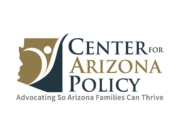Washington, DC — More people, more speech, and more time: Arizona’s Proposition 211 expands on previous donor disclosure laws in nearly every way.
That’s why the Institute for Free Speech filed an amicus brief Monday in Americans for Prosperity v. Meyer urging the US Court of Appeals for the Ninth Circuit to reverse the district court’s decision dismissing a First Amendment challenge to Arizona’s Proposition 211.
The Institute argues that Proposition 211 imposes sweeping disclosure rules unlike anything seen before, expanding on previous laws in almost every way. The law “covers more people, more speech,” and applies for a longer period of time than prior disclosure requirements. By broadening all aspects of an ordinary disclosure rule, the brief notes that Proposition 211 “accomplishes a shift in kind, not merely degree.” As a result, “that shift in kind turns a series of individually problematic provisions into a cataclysmic First Amendment violation.”
“[Proposition 211] is a drastic evolution in compelled disclosure—and one that does not survive First Amendment scrutiny,” argues the Institute’s brief. “Although disclosure rules face less scrutiny than laws directly limiting political speech, that scrutiny is still exacting…Exacting scrutiny calls on courts to engage in the familiar exercise of weighing the burden on speech against the government’s interest, asking whether the law is ‘narrowly tailored’ to achieve a permissible goal.”
The Institute’s brief explains that the Supreme Court has long recognized that the government’s interest in disclosure is tied to informing voters about who is trying to influence elections. But Proposition 211 goes far beyond that interest, capturing speech about public officials months before any election. It also “does not limit disclosure to donors who intend to support election advocacy, or even donors who know their dollars might be used for election advocacy.”
“[T]he way in which Proposition 211 expands every facet of an ordinary disclosure rule fundamentally alters the analysis,” the brief notes. “Any decision on Proposition 211’s constitutionality must account for the sweeping and unprecedented First Amendment burdens created by the law’s cumulative effect.”
To read the Institute’s amicus brief in Americans for Prosperity v. Meyer, click here.
About the Institute for Free Speech
The Institute for Free Speech promotes and defends the political speech rights to freely speak, assemble, publish, and petition the government guaranteed by the First Amendment.














